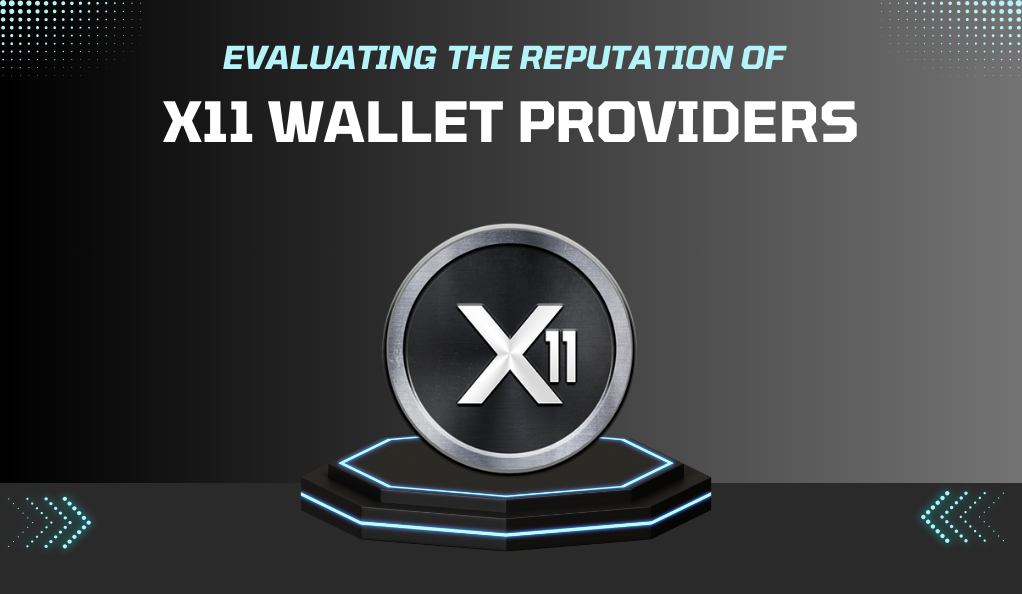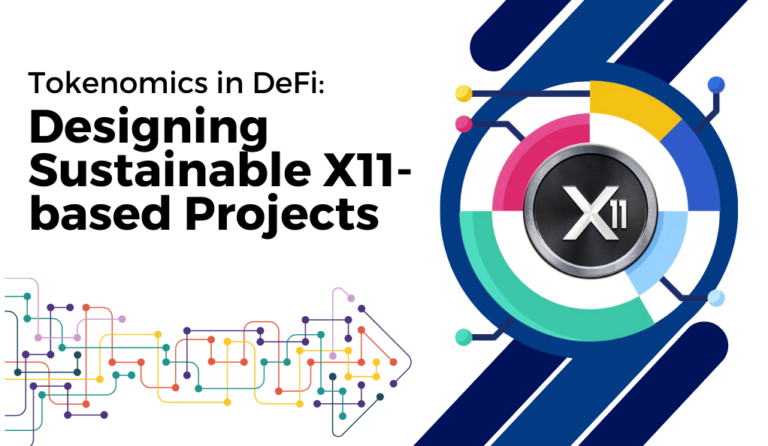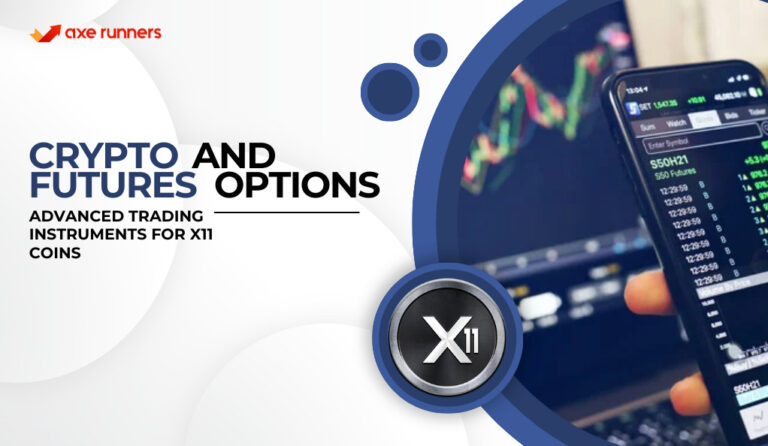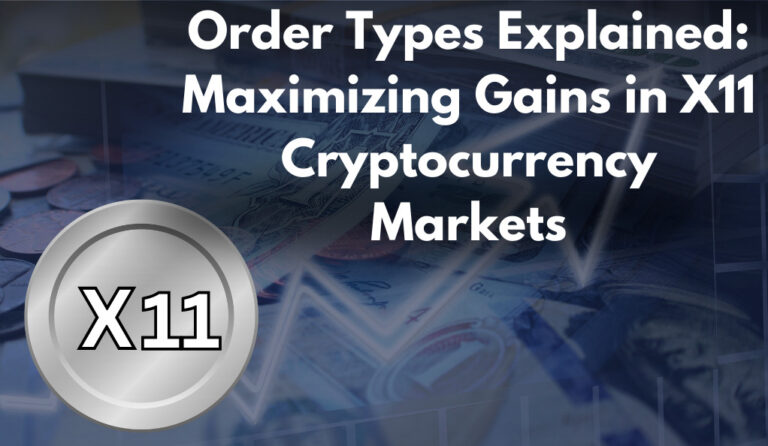In the ever-evolving world of cryptocurrencies, the X11 algorithm has emerged as a significant player, powering various digital currencies and ensuring their security. At the heart of this ecosystem lie the X11 Wallet Providers, entities responsible for safeguarding users’ digital assets and facilitating transactions.
As with any financial service, trust is paramount. The reputation of these providers can make or break their success, influencing user adoption rates and overall confidence in the X11 ecosystem. This article delves deep into the world of X11 Wallet Providers, evaluating their reputation and the trust factor that plays a pivotal role in their operations.
The Rise of X11 in the Crypto Landscape
The X11 algorithm, introduced in 2014, was designed as a more energy-efficient alternative to the then-dominant SHA-256 algorithm used by Bitcoin. It employs a chain of eleven different hashing functions, making it one of the most secure cryptographic algorithms in the market. Its multi-layered approach not only ensures heightened security but also offers better resistance against potential attacks.
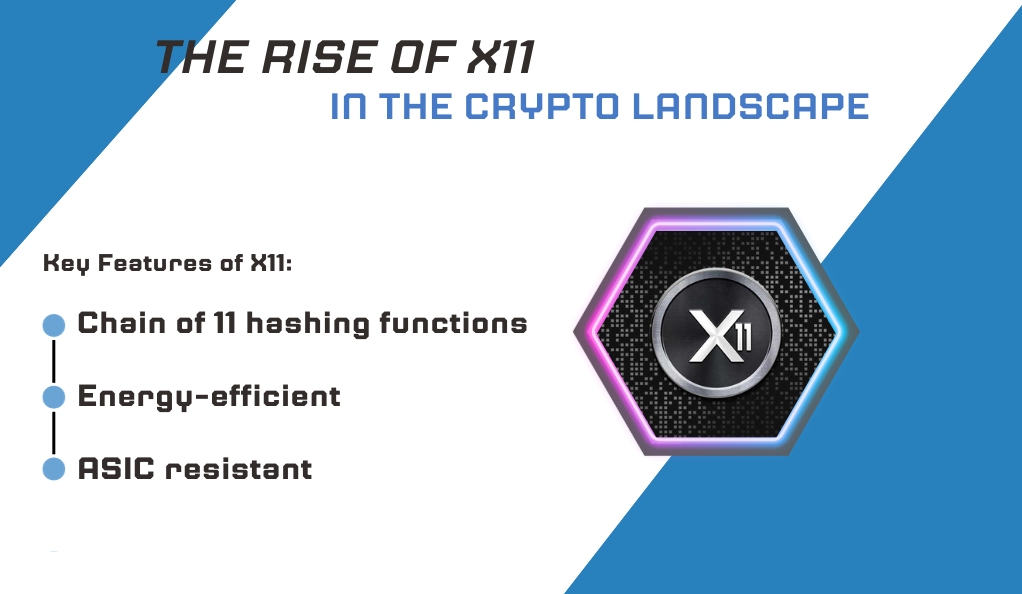
Trust: The Cornerstone of Digital Wallets
In the realm of digital wallets, trust is not a luxury; it’s a necessity. Users entrust wallet providers with their valuable digital assets, expecting not just security but also transparency and reliability. A single breach or mishap can erode this trust, leading to significant financial losses for users and tarnishing the reputation of the provider.
The reputation of X11 Wallet Providers, therefore, is of utmost importance. It’s a reflection of their commitment to user security, their transparency in operations, and their ability to adapt to the ever-changing crypto landscape. As we navigate through this article, we’ll explore the various facets of this reputation, understanding its significance and the factors that influence it.
Understanding X11: A Quick Recap
The X11 algorithm, while relatively newer in the vast landscape of cryptographic algorithms, has quickly gained traction due to its unique features and robust security measures. But what exactly sets X11 apart from its counterparts?
The Genesis of X11
X11 wasn’t just a random concoction of cryptographic functions; it was a meticulously designed algorithm aimed at addressing some of the glaring issues faced by its predecessors. Introduced by Evan Duffield, the creator of Dash (a popular cryptocurrency), X11 was envisioned as a solution to the increasing centralization of mining and the growing concerns about Bitcoin’s energy consumption.
A Multi-Pronged Approach to Security
What truly distinguishes X11 is its chained hashing approach. Instead of relying on a single hashing function, X11 employs a sequence of eleven different functions. This not only bolsters its security but also makes it incredibly resistant to any potential vulnerabilities in one of the hashing functions. If one function is compromised, the others remain unaffected, ensuring the integrity of the entire system.
| Hashing Functions in X11 | Purpose |
|---|---|
| BLAKE | Provides high speed and security |
| BMW | Known for its efficient hardware implementation |
| Groestl | Optimized for energy efficiency |
| JH | Offers a high level of security and performance |
| Keccak | Winner of the NIST hash function competition |
| Skein | Provides fast hashing on a variety of platforms |
| Luffa | Suitable for hardware and software implementations |
| Cubehash | A high-level cryptographic primitive |
| Shavite | Fast computation in software |
| SIMD | Designed for parallel processing |
| Echo | Provides a high level of security with efficient memory usage |
Energy Efficiency: A Step Towards Sustainable Crypto Mining
One of the significant criticisms of cryptocurrencies, especially Bitcoin, has been their environmental impact. The Proof-of-Work (PoW) mechanism, while secure, requires vast amounts of computational power, leading to high energy consumption. X11, with its energy-efficient design, addresses this concern, making it a more sustainable choice for miners and reducing the overall carbon footprint of crypto mining.
Why Reputation Matters for Wallet Providers
In the digital age, reputation is currency. For X11 Wallet Providers, their standing in the community is directly linked to their user base’s growth and sustainability. A stellar reputation indicates reliability, security, and user-centric services, while any tarnish can lead to a rapid decline in user trust and adoption.
The Domino Effect of Trust Breaches
A single security lapse, a minor glitch, or even perceived negligence can have cascading effects on a wallet provider’s reputation. Users, especially in the crypto domain, are incredibly vigilant. News of breaches spreads rapidly, and the crypto community is known for its unforgiving nature when it comes to lapses in security.
Building Trust: A Continuous Endeavor
Earning trust is a journey, not a destination. For X11 Wallet Providers, this means continuous upgrades, transparent communication with users, and swift action in the face of challenges. It’s not just about offering a secure platform; it’s about creating an ecosystem where users feel valued, heard, and, above all, secure.
Evaluating the Security of X11 Wallets
As the popularity of X11 and its associated cryptocurrencies grows, so does the importance of ensuring that wallets supporting this algorithm are secure. But how do users and experts evaluate the security of these wallets? Let’s delve into the key considerations.
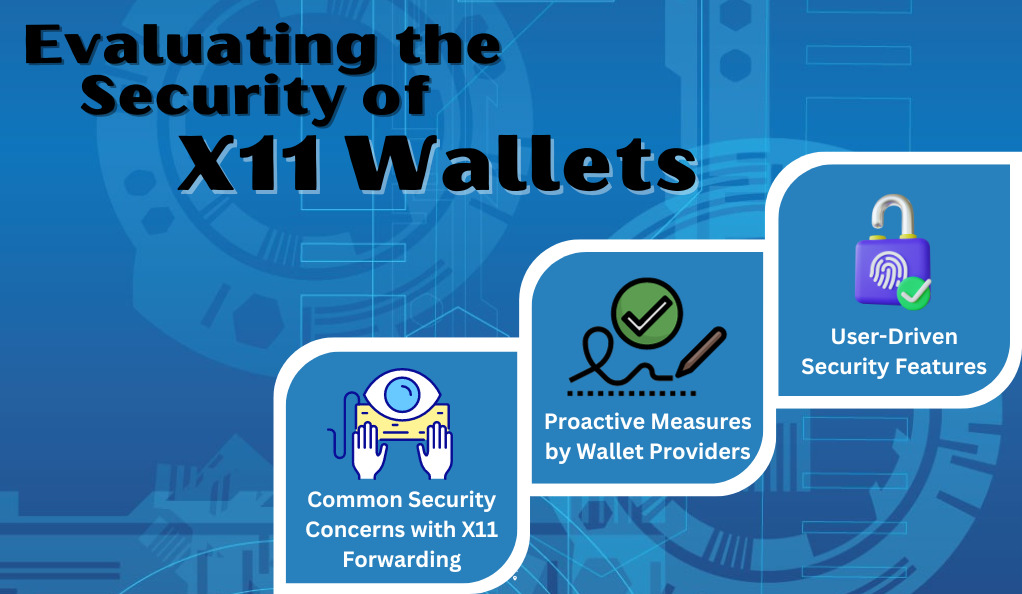
Common Security Concerns with X11 Forwarding
X11, while robust in its design, is not without its vulnerabilities. One of the primary concerns associated with X11 is its forwarding mechanism. When improperly configured or left unprotected, X11 forwarding can potentially expose users to various security threats, including:
- Man-in-the-Middle Attacks: Where unauthorized entities can intercept and potentially alter data being transferred between the user and the wallet provider.
- Keylogging: Malicious actors can potentially record keystrokes, gaining access to sensitive information like private keys or passphrases.
- Window Manipulation: Unauthorized entities can open, close, or manipulate windows on a user’s device, leading to potential data breaches or misinformation.
Proactive Measures by Wallet Providers
Recognizing these vulnerabilities, leading X11 Wallet Providers have implemented a range of measures to bolster security:
- Multi-Signature Authentication: This requires multiple private keys to authorize a transaction, adding an additional layer of security.
- Cold Storage: A significant portion of user funds are stored offline, ensuring they remain out of reach from potential online threats.
- Regular Security Audits: Periodic checks and evaluations by third-party security firms to identify and rectify potential vulnerabilities.
- User Education: Many providers offer resources, tutorials, and guidelines to educate users about best practices and how to recognize potential threats.
User-Driven Security Features
In addition to the measures implemented by providers, many X11 wallets now offer features that allow users to take security into their own hands:
- Biometric Authentication: Users can access their wallets using fingerprints or facial recognition, adding a personal layer of security.
- Timed Logout: If a user remains inactive for a specified period, the wallet automatically logs out, reducing the risk of unauthorized access.
- Backup and Recovery Options: Users can create backup phrases or recovery keys, ensuring they can regain access to their funds even if they lose their primary access method.
User Experiences and Reviews: A Goldmine of Insights
In the age of digital communication, user feedback is invaluable. Reviews, testimonials, and user-generated content provide a window into the real-world performance of X11 Wallet Providers.
The Power of Peer Reviews
While official statements and advertisements can provide information, peer reviews offer unfiltered insights. Users often share their experiences, both positive and negative, on various platforms like forums, social media, and dedicated review sites. These reviews can highlight strengths, pinpoint areas of improvement, and even shed light on potential red flags.
Addressing Grievances: A Test of Commitment
How a wallet provider addresses user grievances is a clear indicator of their commitment to user satisfaction. Providers that actively engage with their user base, address concerns, and implement feedback not only enhance their reputation but also foster a loyal user community.
The Role of Transparency in Building Trust
In the intricate world of cryptocurrencies, where transactions are decentralized and users often operate under pseudonyms, transparency becomes the beacon that guides trust. For X11 Wallet Providers, embracing transparency isn’t just a choice; it’s a necessity to foster user confidence and ensure long-term success.
• The Transparency Spectrum
In the intricate world of cryptocurrencies, the importance of transparency cannot be overstated. For X11 Wallet Providers, this transparency spans several dimensions. Operational transparency delves into the inner workings of a provider, shedding light on their business model, fee structure, and affiliations.
Technical transparency offers insights into the technological infrastructure, security protocols, and any system updates. Financial transparency becomes crucial for providers offering additional financial services, revealing their financial health and investment strategies.
• The Ripple Effect of Transparent Operations
The benefits of transparent operations in the crypto world are manifold and far-reaching. Such transparency directly boosts user confidence, as they feel more secure and informed about the platform they entrust with their assets.
Moreover, a transparent approach fosters a sense of community. Users become more engaged, actively participating in discussions, forums, and sometimes even in decision-making processes. Furthermore, transparency often indicates regulatory compliance, ensuring that providers adhere to global standards and norms, thereby reducing potential legal complications.
Conclusion
The world of X11 Wallet Providers is both intricate and promising. Trust and reputation stand as the bedrock of their operations. By championing transparency, prioritizing security, and aligning with user needs, these providers position themselves as more than just storage solutions; they emerge as pivotal players in the digital financial era.
Moving forward, the path is filled with challenges, from evolving regulations to heightened security threats and intense market competition. Yet, with these challenges come unparalleled opportunities. By staying agile and user-centric, X11 Wallet Providers can not only solidify their market presence but also play a decisive role in shaping the future of cryptocurrency transactions and adoption. The horizon is vast, and the potential is boundless.
At axerunners.com, our goal is to furnish well-rounded and trustworthy information regarding cryptocurrency, finance, trading, and stocks. Nonetheless, we avoid providing financial advice and instead encourage users to conduct their own research and meticulous verification.
Read More
